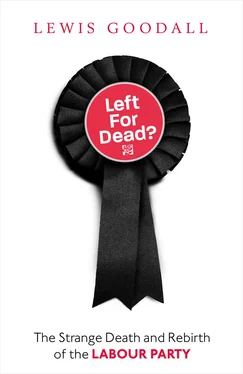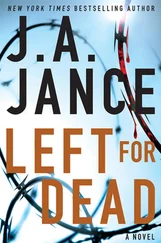By the time of my childhood, Rover had been manufacturing cars on the site for a hundred years. Ever since a young industrialist, Herbert Austin, discovered a disused printing works there in 1905, it had been a hive of industry. A century later, in 2005 it had largely closed. At its peak, 100,000 people were employed on that site alone; even by the dawn of the millennium, five years before closure, my father was one of 25,000, with an estimated 100,000 in the wider supply chain.
So, as its troubles mounted in the late 1990s and early 2000s, we all of us were aware of just how potentially devastating the factory’s closure would be. As the national media poured in to witness the slow decay of this last British brand of motor car, we kids went to school every day in something akin to grief. I remember seeing the worry in my mum’s eyes, I remember her asking my dad, every night before he’d even had chance to take off his coat, what news there was from the union, from management – something, anything that might give us some hope and if not hope then at least some certainty. This was reflected and amplified for me in the playground, all of us exchanging fragments of half-truths that had been ricocheting around our fevered imaginations. The plant’s travails, every twist and turn of the story, gripped us and the wider community like an all-too-real soap opera. I can recall, as an eleven-year-old, praying, on more than one occasion, that the factory would be saved and Dad would keep his job.
It wasn’t and he didn’t. As BMW pulled out in 2000 and the factory was ‘rescued’ by a consortium of local businessmen, Dad decided to take redundancy. By his own reckoning, it was ‘one of the only good decisions I’ve ever made’. Although not exactly flattering for my mother and for me, it had the benefit of being true. By leaving when he did, he received a full redundancy package to reflect his decade-long service. Those 6,500 who chose to stick with the plant until 2005, when it finally closed its doors, received no more than half a month’s pay packet. At the same time, the plant’s newish and final owners made a pretty penny. While profits plunged and the news became grimmer, it transpired that the British Towers group, which in 2000 had bought the plant from BMW for £10, had been siphoning considerably more than a tenner of investment into their own pockets. In 2002, they pumped £12.95m into a trust fund for their retirement. At the end of its five-year tenure the Phoenix consortium had been remunerated with £42m while the company went into administration with debts worth over £1.4bn. The day after closure, while being interviewed by the BBC, John Towers announced the set-up of the Longbridge Trust Fund for ex-workers – where he pledged the assets of the company, which he hoped would raise up to £50m for the workers’ severely damaged pensions. As of 2018, those workers were yet to see a penny. Later, it became clear that 6,000 workers would receive next to nothing from the pensions they had paid into for years. The money had vanished. The news broke that Nanjing, a Chinese consortium about which nothing was known in Birmingham, was buying the intellectual property, branding and remaining assets of what was the Rover MG Group. A tiny handful of workers remained in Longbridge, with the rest of production moving to China.
At the same time, BMW had taken the only assets that made the brand profitable, including the iconic Mini that had been produced on the site for decades. When I look back, I can see it as a textbook indictment of the worst elements of globalisation and corporate greed, and it left our community bewildered and bereaved.
This canvas is the one on which my childhood and early life were painted, in colours that millions of others would recognise too, in Britain and across the West. Those same forces, and the anger and resentment left in their wake, also form the base coat for the politics of our own age.
My family were not especially political. Both my parents’ families were quintessential congenital Labour types, the sort of people whose politics is motivated by an atavistic but powerful instinct: ‘We vote Labour because they are for us and the other lot are for them.’ One of my earliest political memories, perhaps my earliest political imprint, was my grandad telling me that Margaret Thatcher ‘made the rich richer and the poor poorer’ and Mum nodding sagely as he did so. As simplistic as it may sound, these are the fundamental political reflexes on which most people rely, the lenses through which they view and make sense of the world around them. Grandad read the papers and watched the news but they largely reaffirmed his own views; the rest of my family didn’t do much of that but they knew how they felt. None of them were much troubled by party politics; if they remembered to vote, they would vote Labour – and that was that.
And that’s why, at the time of Rover’s travails, I simply couldn’t understand why the then Labour government wasn’t helping my dad. My eleven-year-old brain, small but curious, was flummoxed by the events leading to the factory’s closure. I knew that the Tories were for them and Labour was for us. Yet Labour didn’t seem terribly interested in helping us, any more than the loathsome Tories were.
I remember walking around the by then rather tumbledown Grosvenor Shopping Precinct up the road from our house, looking at my mum as she nipped around the shops and thinking, Why doesn’t the government just buy the factory, employ the workers, they’ll pay tax and there won’t be a problem? †But there would be no question of much assistance. There was endless talk, and a lot of hype – one Labour cabinet minister after another (from the very top down) traipsed to our little corner of Brum – but there was certainly no question of nationalisation or a rescue package. In fairness, the government did offer a £100m bridging loan to lure a separate Chinese company to invest in the business, but when they got cold feet, there was nowhere else to go. I remember my dad, late one night, over a bottle of Newcastle Brown Ale in our kitchen, musing, almost to himself, how funny it was that the fate of all his old mates was being decided in a boardroom somewhere, in another language, by people we’d never met, by a company we’d never heard of, in a country none of us were ever likely to visit. After a moment’s contemplation, he took another swig, shrugged his shoulders and said, ruefully: ‘That’s the modern world, I suppose.’
What my young brain also found difficult to understand was that our government, the body in which so much awesome power was said to reside, appeared so impotent. How pathetic, it seemed, to have British ministers, the chancellor of the exchequer himself, shuttling back and forth to China, begging a company that was itself owned by the Chinese state, to reconsider. Worse, even those efforts were for naught.
But my dad and his mates got on with it, and this fortitude wasn’t uncommon. Rover’s death had been a slow one; most had been braced for it. There was never any serious expectation that the government would step in directly. Ever since the 1980s, plenty of working people had seen their employers bite the dust and been told, rightly or wrongly, that the government ought not and could not step in, that it would distort the market, that the world had globalised, that the buck no longer stopped with the government. There was, then, no real backlash. The hard-working local Labour MP was re-elected in the subsequent general election, despite the factory’s closure. The BNP, and later UKIP, gained in strength but never seriously threatened. Most voters carried on voting Labour, in the knowledge, perhaps, that though Labour would do little, they would at least try and do a little more than the obvious alternative.
Читать дальше












